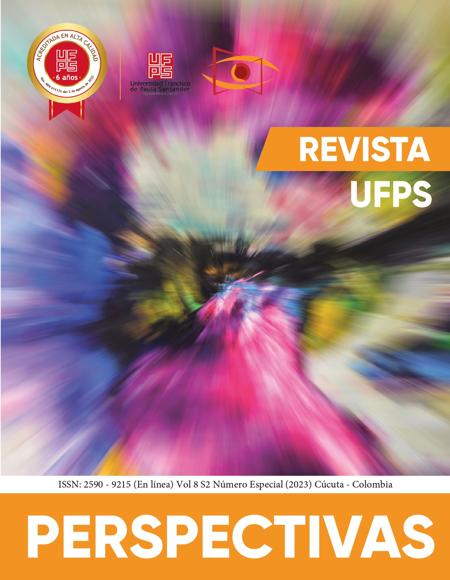A Look at the Social Aspects and the Colombian Legal Framework of Non-Binary Gender Persons
Una Mirada a los Aspectos Sociales y al Marco Jurídico Colombiano de las personas de género no binario.
Main Article Content
People of non-binary gender have been historically denied and invisibilized by society and in an evident manner by the Colombian State and all its entities at the national and territorial levels, this has given rise to a scenario in which public policies and the regulatory system have not been developed in an efficient, propitious and accurate manner, generating that the national legal system is developed without their participation and representation, thus giving rise to a great invisibilization of this population sector. It is for this reason that this article seeks to make an accurate analysis of the Colombian legal framework related to the instruments promoted by the legislature and the executive in order to achieve the protection of the fundamental rights of people of non-binary gender, bringing to mention the current regulations, administrative decrees and jurisprudence of the honorable Constitutional Court of Colombia, all this will be done through the use of methodological tools of qualitative nature, which help to understand correctly and respectfully the historical context in which these rules are given. This is the reason why this article will focus on the human rights of people of non-binary gender, cis-normativity as one of the biggest problems in Colombia, and the normative regulation of the LGTBIQ+ community and people of non-binary gender as subjects of special constitutional protection, where analyzed the above, it is detailed that the regulations used by the Colombian State are relatively new, it is a step to start, however, there are many more to be detailed and established for non-binary gender people to fully enjoy their fundamental rights.
Downloads
Article Details
Carbonell, M. (2007). Discriminación, igualdad y diferencia política. Comisión de Derechos Humanos del Disrtrito Federal. https://www.corteidh.or.cr/tablas/27899.pdf
CIDH, Informe sobre Violencia contra Personas Lesbianas, Gay, Bisexuales, Trans e Intersex en América. Doc. 36. 12 noviembre 2015 http://www.oas.org/es/cidh/informes/pdfs/violenciapersonasLGBTIQ+.pdf
Constitución política de Colombia. Asamblea nacional constituyente. 1991.
Corte Constitucional. Sala Primera de Revisión de la Corte Constitucional. Sentencia T-068/21. M.P. Diana Fajardo Rivera. 19 de marzo del 2021.
Corte Constitucional. Sala Primera de Revisión de la Corte Constitucional. Sentencia T-141/17 M.P. Maria Victoria Calle Correa. 7 de marzo de 2017.
Corte Constitucional. Sala Quinta de Revisión de la Corte Constitucional. Sentencia T-030/17. M.P. Gloria Stella Ortiz Delgado. 24 de enero del 2017.
Corte Constitucional. Sala Séptima de Revisión de Tutelas de la Corte Constitucional. Sentencia T-376/19. M.P. Cristina Pardo Schlesinger. 20 de agosto de 2019.
Corte Constitucional. Sala Sexta de Revisión de la Corte Constitucional. sentencia T-033/22. M.P. Gloria Stella Ortiz Delgado. 4 de febrero del 2022.
Declaración Universal de Derechos Humanos. Adoptada y proclamada por la Asamblea General en su resolución 217 A (III), de 10 de diciembre de 1948. https://www.ohchr.org/sites/default/files/UDHR/Documents/UDHR_Translations/spn.pdf
Decreto 762 de 2018. Por el cual se adiciona un capítulo al Título 4 a la Parte 4, del Libro 2, del Decreto 1066 de 2015, Único Reglamentario del Sector Interior, para adoptar la Política Pública para la garantía del ejercicio efectivo de los derechos de las personas que hacen parte de los sectores sociales LGBTIQ+ y de personas con orientaciones sexuales e identidades de género diversas. Presidencia de la República de Colombia. 07 de mayo, 2018.
Departamento Nacional de Planeación. Plan Nacional de Desarrollo 2018-2022 “Pacto por Colombia, pacto por la equidad”. (2019). https://colaboracion.dnp.gov.co/CDT/Prensa/Resumen-PND2018-2022-final.pdf
Ley 1753 de 2015. por la cual se expide el plan nacional de desarrollo 2014-2018 “todos por un nuevo país”. 9 de junio del 2015. DO núm, 49.538 (Col.).
Ley 2294 de 2023. Por la cual se expide el plan nacional de desarrollo 2022-2026 “Colombia potencia mundial de la vida”. 19 de mayo de 2019. DO núm 52.400 (Col).
López Medina, D. E. (2006). El derecho de los jueces: obligatoriedad del precedente constitucional, análisis de sentencias y líneas jurisprudenciales y teoría del derecho judicial. Legis.
Sánchez Barrera, E. L. (2017). El movimiento LGBT (I) en Colombia: la voz de la diversidad de género. Logros, retos y desafíos. Reflexión Política, 19(38), 116-131. https://www.redalyc.org/pdf/110/11054032009.pdf







